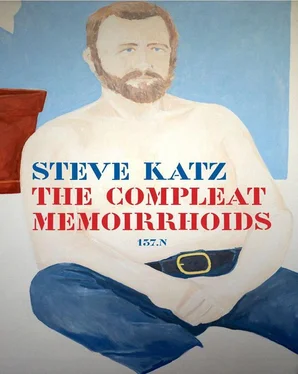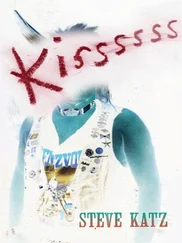L’Orchestra di Piazza Vittorio , documents the development of a concert out of instruments and players from all these ethnicities. The Chinese practice in the park, as I do. There is a Chinese teacher occasionally who teaches a Chen form to students, mostly Italian. He sits on a bench and smokes cigarettes, and sometimes gets up to correct them. They look pretty good. Here and there on paths and lawns Chinese people do various forms of tai chi, chi gung, etc.. The largest group has a boom box placed on a table in the broadest paved space. They earnestly step each other around, practicing the tango from 7 a.m. till noon. I do my Yang and my Chen forms while the Chinese tango in Rome.
My principal teacher in Denver has been Bing Lee, a native Denverite. He is a body prodigy who has a genius for learning forms. With the help of Sifu Mike Bingo, a legendary special forces guy, a master of Xinyi, who was passed the lineage from his teacher in Taiwan, Bing has a deep understanding and is willing to teach the marshaling and discharging of energy. He is the only teacher I have had who lets you put your hands on his body so you can feel how the energy moves. It has been a privilege to work with him. When Master Liang was visiting to do a weekend Chi Gung workshop we stood for an hour with the arms extended in a circle in front of the chest. By the end of the hour most of the forty some students had given up. Only Bing, one other student, and myself remained in the posture. I felt good about that, but whenever Bing tells the story of that hour he never includes me. That feels sometimes like a pebble caught in my Daoist shoe. Bing almost never compliments the students. The closest he came to complimenting me was when he had me demonstrate something in front of the class. If you’ve spent some years trying to get deeper into this practice you are best prepared to understand this as a compliment. “Look at Steve,” says Bing. “When he first came here he was rigid, inflexible. Now he almost moves.”
Rudy and Lynn and myself hire a car and driver to take us to Pondicherry. The car is the Indian built Ambassador, 0 to 60 in forty-three minutes. We could have rented a car, but the narrow Indian highways are terrifying. There’s an hallucinatory range of transport — scooters, bicycles, ox-carts, donkeys, water buffalo, handcarts, pedal cabs, cows wandering where they please. This agglomeration of traffic clots the narrow roads and challenges the cars, vans, trucks, and semis. Farmers winnow and dry their grain and seed on the flat road surface. Huge semis, double trailers, barrel down the middle of the road, looking like they’re headed for collision with your little Ambassador. They both swerve at the last second to go around each other. It’s like the driving culture goes by road rules derived from a game of “chicken.” I wasn’t about to test my driving skills in this.
Pondicherry is interesting for many reasons, one being that its foreign influence and second language is French, so you hear French on the beaches, unlike in the northern cities of the Raj where English reigns. Here Sri Aurobindo founded a kibbutz-like, socially conscious ashram, centered in a community they developed called Auroville. Aurobindo wrote in English an enormous indigestible metaphysical poem/treatise called Savitri . When he died a French woman/disciple they named The Mother took over and ruled with great strictness. You can see this in pictures everywhere of her stern face. The community was familiar to me because one of my ex-wife’s cousins disappeared into it. She was instructed to reject all family and previous friends, and to write them formal letters to that effect. We drive past Auroville, but don’t stop.
The driver assures us we can get to Tiruvannamalai in good time, so we head there. It’s in Tamil Nadu, where the ashram of Ramana Maharshi sits below the enchanted mountain of Arunachala. The holy man quit his body in 1950. Somerset Maugham modeled the guru in The Razor’s Edge after Ramana Maharshi. We are picked up first by a tall, slick, grey haired disciple who says he is a caretaker, and shows us around, asking for money at every turn. We give him many rupees though we suspect that won’t all go to support the institution. He explains that we can stay at the ashram, and spells out the terms of that stay. Some rupees to him is part of the deal. He sticks to us as we wander around. He’s like the rip tide of rupees. Finally we lose him when we enter Ramana Maharshi’s meditation room. We sit there for a half hour, facing a life-size photo of the avatar in reclining position. I am suddenly exhausted, distracted by small aches and pains. I wonder about the guide. Will he be waiting for us? It’s a relief that he’s gone when we leave the room. We have permission to take the walk up Arunachala to the Virupakshi cave where the master spent seventeen years of his life in meditation, but decide not to so we can get back to Madras for an evening concert. To this day I regret not making the climb. Lynn says she definitely felt something in the meditation room. I was too distracted, I say, and didn’t feel anything. I often come up dry in those situations. Rudy was non-committal. Though I “felt nothing,” these days whenever I look at a picture of Ramana Maharshi I feel something. And when I go to the website that broadcasts 24/7 a live picture of the mountain I often get a feeling of peace and balance. On the website the Lord Siva is quoted as saying, “What cannot be acquired without great pains — the true import of Vedanta (Self-Realization) — can be attained by anyone who looks at (this hill), from where it is visible or even mentally thinks of it from afar.”
your eyen two wol slee me sodenly
I may the beauty of him not sustene
Bobby-Louise packs her oxygen in a shoulder holster, under her arm. The party is for her. Jack Collum boosts his from a strap across his chest. He and Jenny are giving this party for Bobby on her retirement from Naropa. When I lived in Boulder, I spent many pretty evenings in this house but have been there only a few times since I moved to Denver. The house feels overripe, not cluttered but encrusted with stuff accumulated over two interesting lifetimes. Artifacts from Jennifer’s long sojourns in Afghanistan hang from the walls and cushion the settees. Jack’s long generous career writing poems, teaching kids, collecting folk music and blues, fill shelves with tapes and books. No empty space here, but a cave-like feel of slow accretion and crowding nourished by the steady drip of time. Nothing decorated here, all of it lived. The people gather in Jennifer’s garden, near the small pond dug by herself, the plantings a crazy panache of vegetation, flowers scattered at random with edibles. We all mingle and talk in this unfeasible curtilage, beautiful as a map of Jennifer’s mind.
Keith Abbott tells me about a trip to his old stomping grounds to enrich his memoir of being a small college athlete. I tell him about the Memoirrhoids , both of us working in our memories. We exchange contact numbers again, and vow to get together if we remember. Anselm, festooned in black as always, and grey-haired as the rest of us, sits down on a cast iron love seat in the garden. We will tell stories, and toast Bobby-Louise Hawkins. Anselm Hollo says, “We are old.”
Junior, the present chair of the Naropa writing program, proposes the toast, and we lift wine glasses for Bobby. He’s less old. His little girl Simone runs around garden being charming. She hands me a tiny toy cannon that can shoot, and has me hold on to it because she might need it later. The outgoing president of Naropa tells a story of this woman who one evening showed up at his door. They invited her in and spent an hour or so in wonderful conversation. When she left, he and his wife asked each other, “Was that Bobby Louise Hawkins?” Bobby had arrived at a planned party a month early. Reed Bye, who never looks older, gives a circuitous account of Bobby at faculty meetings where they discussed applicants to their program, and she would always ask about the work at the end, “Yes, but does it have flare?” Flare was her secret requirement. Elizabeth Robinson, too young and shiny to look old as the rest of us, tells about an evening where Bobby sang, beautifully. Bobby, who doesn’t drink any more, responds, “Yes, the wine had its good qualities.” I regret that except for my admiration and fondness for her I have no story to tell about Bobby, except perhaps now this one I tell here.
Читать дальше












